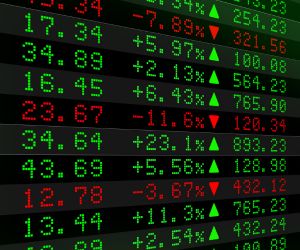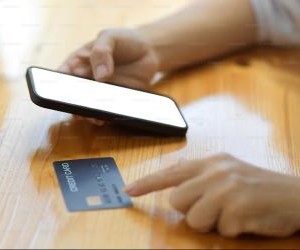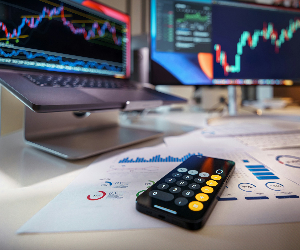HOW DOES THE EXCHANGE RATE AFFECT YOUR PERSONAL FINANCES?
The exchange rate is one of the most important economic indicators and affects your personal economy even if you never buy dollars directly. From the price of imported products to the cost of travel, education, technology, fuels, and foreign currency credits, the value of your local currency against the dollar has a real effect on your purchasing power. In this article, I explain what the exchange rate is, how it is determined, how it impacts you daily, and what strategies you can use to protect your personal finances from exchange rate volatility.

What is the exchange rate and how is it determined
The exchange rate is the price of one currency relative to another. When people refer to the exchange rate, they often reference the value of their local currency against the US dollar (USD), although there are also exchange rates against the euro, yen, or yuan.
For example, if the exchange rate is 18.50 local currency units per dollar, it means you need 18 currency units and 50 cents to buy a dollar. This price is not fixed; it changes daily based on the supply and demand of currencies in the financial markets.
How is it determined?
Supply and demand: If many people or companies want dollars, the price goes up. If they sell them, it goes down.
Macroeconomic factors: inflation, interest rates, trade balance, public debt, and economic growth.
Decisions by central banks: changes in interest rates or reserves can move the exchange rate.
Global events: crises, elections, wars, or pandemics generate uncertainty and sharp movements.
Investor confidence: If a country is perceived as stable, the local currency strengthens. If there is fear, it depreciates.
There are three main types of exchange rate quotations: the official reference rate published by the central bank, the interbank exchange rate (used between banks), and the retail exchange rate (the one you see in exchange offices or banks).
How the Exchange Rate Impacts Your Daily Life
Even if you don't buy dollars, the exchange rate affects you in many ways. From the price of the cellphone you use to the gasoline you fill up with, the value of the dollar influences multiple aspects of your personal finances, directly or indirectly. Here, I explain the most relevant ones.
1. Imported Products
A significant quantity of products consumed every day are imported: computers, cellphones, clothing, medications, cars, among others. If the dollar rises, these products become more expensive. This directly affects your monthly budget and inflation.
2. Technology and Electronics
Gadgets, computers, smartphones, and even video games are often priced in dollars. An increase in the exchange rate can mean that a cellphone that cost $15,000 now costs $17,000 or more, even if it's the same model.
3. Education and Travel
If you study abroad or pay tuition fees in dollars, any fluctuation in the exchange rate will directly impact your costs. The same applies to flights, accommodation, insurance, or medical expenses outside the country. A weak currency increases the cost of any international trip.
4. Gasoline and Energy
Although oil is produced domestically, a significant portion of gasoline consumed is imported. These transactions are done in dollars. If the exchange rate rises, fuel prices do too, which affects transportation, goods distribution, and consequently, many consumer prices.
5. Dollar-Denominated Loans
If you have an auto, mortgage, or business loan contracted in dollars, an increase in the exchange rate means you'll have to pay more in local currency for the same debt, which can destabilize your finances if you're not prepared.
6. Savings and Investments
If you invest in dollars or have a foreign currency account, a weak domestic currency increases the value of your assets. On the contrary, if your entire portfolio is in local currency, you might lose purchasing power against the dollar.
7. Wages and Salaries
If you work for an exporting or multinational company, your salary might be indirectly linked to the exchange rate. When the dollar rises, sometimes these companies earn more and can offer better benefits or bonuses. But if the local currency appreciates too much, some might lose competitiveness.
8. Healthcare Costs and Medicines
Many medications, medical devices, and hospital equipment are imported and subject to the dollar exchange rate. A high exchange rate raises these costs and directly affects your budget if you pay for private consultations or treatments.
How to Protect Your Finances Against Exchange Rate Volatility
The volatility of the exchange rate can be a silent enemy to your money if you are not prepared. While you can't control the market, you can take concrete steps to shield your personal finances. Here are some practical strategies:
1. Diversify Your Savings
Open a dollar account if you have income or expenses in that currency.
Buy investment funds or ETFs linked to the dollar or international markets.
Consider platforms like GBM+, Kuspit, or Finamex to access assets in foreign currencies.
2. Save in Protected Instruments
Use CETES, Bondes, Udibonos, or promissory notes that offer attractive rates in your local currency to protect your money from inflation. You can also opt for instruments indexed to the exchange rate.
3. Plan Expenses in Foreign Currency
If you are going to travel or pay tuition, buy dollars gradually when the rate is favorable.
Avoid buying everything at once during high volatility times.
Consider credit cards that do not charge a currency conversion fee.
4. Avoid Debts in Dollars
If you do not have income in dollars, avoid getting into debt in that currency. A change from 17 to 19 per dollar can increase your monthly payment significantly without changing your debt itself.
5. Follow the Economic Calendar
Learn to follow decisions from central banks. Their rate movements directly affect the exchange rate. Anticipating them will give you an advantage to move your savings, buy currencies, or adjust your expenses.
Subscribe to reliable sources such as financial news sites to understand trends.
6. Adjust Your Budget
If you see the dollar is rising, readjust your expenses. It might be better to wait to buy gadgets, import products, or pay for international services. Allocate more to savings and reduce exposure to expenses in foreign currency.
Remember: a volatile exchange rate not only impacts large companies. It can also affect your wallet if you're not mindful of it.









